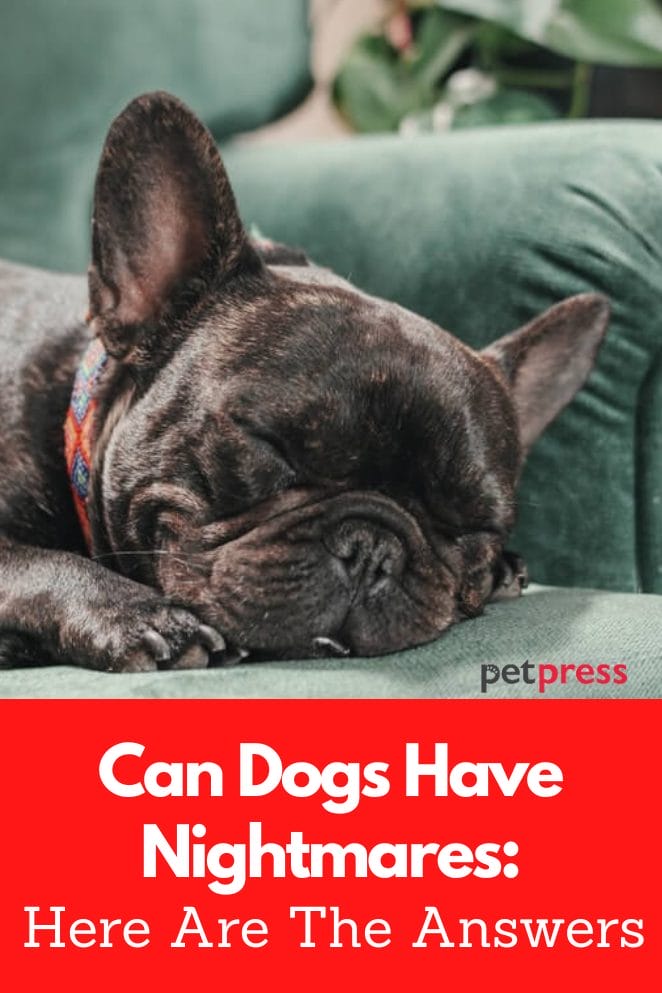
It’s a question that has plagued dog owners for centuries: can dogs have nightmares? The answer, unfortunately, is a resounding “maybe.” While we don’t know for sure if dogs experience traditional nightmares complete with fear and anxiety, we do know that they can have bad dreams.
Dogs are complex creatures with rich emotional lives, so it’s not surprising that they might have nightmares from time to time. If your dog seems restless or agitated during sleep, it’s possible that he’s having a bad dream.
What causes nightmares in dogs?

There’s no definitive answer to this question – just as there isn’t for humans – but there are a few possible explanations. One is that nightmares may be caused by something called sleep deprivation, which occurs when a dog doesn’t get enough quality sleep. This can be due to stress, excitement, or simply not having a comfortable place to rest.
Another possibility is that nightmares may be linked to underlying health problems such as anxiety or seizures. And finally, some experts believe that dogs may dream about things that they’re afraid of – much like humans do. If your dog seems to be having nightmares frequently, it’s best to talk to your vet about possible causes and treatment options.
What do dog nightmares look like?

While we can’t know for sure what’s going on in our furry friend’s head, there are some telltale signs that your pup is experiencing a nightmare. Here are a few things to look out for:
- Restlessness: If your dog is tossing and turning in their sleep, it may be a sign that they’re having a bad dream.
- Whimpering or yelping: This is another common sign of a nightmare. Your dog may start to whimper or yelp in their sleep as if they’re trying to wake themselves up from a bad dream.
- Pawing at their face: Dogs will sometimes paw at their face or head during a nightmare as if they’re trying to ward off something scary.
- Changes in breathing: You may also notice that your dog’s breathing changes when they’re having a nightmare. They may start to pant or breathe heavily as if they’re running from something.
While nightmares may be scary for your dog, they don’t usually indicate a bigger problem. In most cases, bad dreams are simply a normal part of doggy sleep. However, if your dog is having nightmares on a regular basis, it could be a sign of an underlying anxiety issue.
How do you help a dog with nightmares?

There are a few things you can do to help your dog if they’re having nightmares.
First, try to create a calm environment for them to sleep in. This means keeping the lights low and making sure there aren’t any loud noises or other stimuli that could startle them awake. You might also want to consider playing soft music or using a calming diffuser with lavender oil to help them relax.
If your dog seems particularly stressed or anxious, you can talk to your veterinarian about possible anti-anxiety medication. This can be a short-term solution to help them get through a tough time or deal with a specific trigger for their nightmares.
Finally, make sure you’re providing plenty of love and attention during the day. A good cuddle session before bedtime can help your dog feel safe and secure, making it more likely they’ll have peaceful dreams.


GIPHY App Key not set. Please check settings